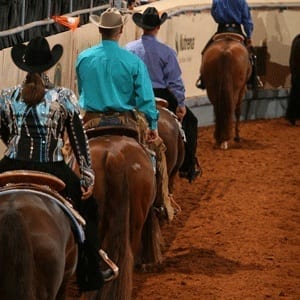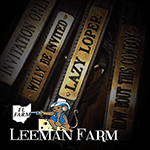Cloning is a complicated and emotional subject for AQHA members on both sides of the issue. While there are those who view cloning as just another breeding tool, a great majority of our members simply do not perceive cloning to be a natural extension of existing breeding practices.
Although the process of collecting an egg and a sperm and combining them has been accepted by members for quite some time, the thought of creating a new horse by harvesting a cell from a horse’s skin or other body part remains a concept that most members have not accepted. As a result, AQHA through the AQHA Stud Book and Registration Committee, its board of directors and its members has during the past several years put considerable effort into better understanding the issues involving cloning, including both its perceived benefits and the potential downsides.
Since 2008, AQHA representatives and members have been studying the science and practicality of cloning and the impact it could have on the breed. The stud book committee and a cloning task force have examined the numerous issues involved with cloning and, in doing so, they have consulted with a wide variety of experts in the cloning field.
In studying cloning, the committee and the task force were given the opportunity to hear from a number of experts in the field. These include Dr. Katrin Hinrichs, a veterinarian involved in equine cloning at Texas A&M University; Dr. Sharon Spier, an epidemiologist at the University of California-Davis; Dr. George Seidel, a professor specializing in biomedical sciences at Colorado State University; Blake Russell of ViaGen, a commercial equine cloning company; and Dr. Gregg Veneklasen, a veterinarian who is a partner in one of the entities named as a plaintiff in the lawsuit.
At the 2009 AQHA Convention, AQHA sponsored a cloning forum that more than 400 AQHA members attended and that was webcast live on AQHA.com. This forum included formal presentations from Dr. Hinrichs, Dr. Spier, Dr. Seidel and Russell. Following these presentations, AQHA members were given the opportunity to offer their own comments on the subject and ask questions of the expert panelists.
Also at the 2009 Convention, the stud book committee’s recommendation was that the subject of cloning be studied further by establishing a cloning task force, with the directive to continue to seek information and input from informed sources regarding cloning. Additionally, the task force was to examine, among other things, parentage verification issues, the implications of cloning on the registration process, sentiment of the general membership and implications of cloningwith respect to genetic diseases. The information gathered by the task force was presented to the stud book committee at the 2010 convention.
Following the presentation of the task force findings at the 2010 Convention, the stud book committee members discussed proposed amendments to several registration rules that would allow for the registration of horses produced via somatic cell nuclear transfer, a particular method of cloning. Ultimately, the stud book committee recommended to the board of directors that such rule changes be denied. The AQHA Board of Directors agreed with the recommendation, and no rule changes were enacted concerning cloning.
At the 2011 Convention, the stud book committee again addressed the topic of cloning when it considered a proposed rule change from a member that would allow for the registration of a cloned horse for breeding purposes only. The committee recommended that the proposed rule change be rejected and the board of directors agreed.
Once again, a rule-change proposal concerning cloning was made prior to the 2012 Convention. At this most recent Convention, the proposed change to Rule 227(a) would have amended it to allow for the registration of the offspring of a cloned horse. After hearing from members, the stud book committee chose not to recommend passage of the proposal, with the board of directors following suit and not adopting the proposed change.
Since 2008, members have expressed different opinions regarding equine cloning. Some of the concerns expressed by members over the cloning issue include: (1) issues that cloning presents with respect to parentage verification (currently there is no feasible method to differentiate whether a particular offspring is by an original stallion or by the clone of the stallion; likewise, if an original stallion is cloned more than once, there is no feasible method to differentiate whether a particular offspring is by the original stallion, Clone No. 1 of the stallion or Clone No. 2 of the stallion); (2) the significant change that cloning presents in the sire/dam system upon which the registration of Quarter Horses has always been based; (3) the impact cloning may have in the area of genetic diseases; and (4) the moral objections to cloning.
As part of the cloning task force process discussed earlier, a survey was sent to a random sample of 3,000 AQHA members with a response rate of more than 30 percent. Of the respondents, 86.02 percent were against cloning; 8.29 percent were for cloning and 5.68 percent were neutral.
Since 2008, only three AQHA members have submitted proposals to the stud book committee that would alter the rules to allow for the registration of clones. To date, the 30-plus AQHA members who comprise the stud book committee and the more than 250 individuals who sit on the AQHA Board of Directors consist of a very diverse group of AQHA members ranging from American Quarter Horse breeders and racehorse owners to exhibitors and recreational riders.
The members who sit on the stud book committee and the board of directors have voiced their concerns over cloning by way of their votes on the rule change proposals that have come before them concerning Rule 227. As demonstrated by their votes on the proposed rule changes to Rule 227, the members of the stud book committee and the board of directors have consistently voted that clones should not be registered with AQHA.
—————————————————————————–
AQHA has been informed that an Anti-Trust lawsuit has been filed against AQHA by one of its members, Jason Abraham, and two of his related companies, Abraham & Veneklasen Joint Venture and Abraham Equine Inc. The nature of the suit concerns AQHA’s current rule that prohibits the registration of cloned horses and their offspring. Mr. Abraham and his companies seek to have the cloning rule amended to allow cloned horses and their offspring to be registered with AQHA as American Quarter Horses in AQHA’s breed registry.
As this suit was filed April 23, 2012, AQHA has not yet had the opportunity to fully review the suit. However, AQHA will respond accordingly once the claims have been examined in detail.
AQHA is a member-run breed registry organization. The cloning rule with which Mr. Abraham and his companies take issue is Rule 227(a) that provides:
(a) Horses produced by any cloning process are not eligible for registration. Cloning is defined as any method by which the genetic material of an unfertilized egg or any embryo is removed and replaced by genetic material taken from another organism, added to/with genetic material from another organism or otherwise modified by any means in order to produce a live foal.
This rule has been in effect since 2004 and was approved by the board of directors, which is fully composed of members of AQHA. Each year prior to AQHA’s Convention, AQHA members may request rule changes or the implementation of new rules (“rule changes”). During the past several years, a few AQHA members have requested a change to Rule 227 to allow the registration of cloned horses or their offspring. Thus far, the AQHA members who comprise the stud book and registration committee and the board of directors have voted not to change the cloning rule. During the rule change debates that have taken place at past conventions, both those seeking to have the rule changed and those in opposition to changing the cloning rule have appeared before the stud book and registration committee and provided information that they desired the committee to review in preparation for voting on the proposed rule change. Additionally, various persons with scientific backgrounds in the field of cloning, including Dr. Gregg Veneklasen, have appeared before the committee.
At the most recent Convention, which took place in March 2012, the most recent rule change request offered by Dr. Veneklasen was presented to the 33-member stud book and registration committee. Mr. Abraham and Dr. Veneklasen spoke to the committee and voiced their support for the rule change and presented their arguments in favor of registering cloned horses and their offspring. Following the presentation of the rule change, the stud book and registration committee voted against the proposed rule change.
“At this time, we are reviewing the lawsuit and have informed the AQHA Executive Committee, the stud book and registration committee and the board of directors,” said AQHA Executive Vice President Don Treadway. “These committees and the AQHA members who sit on them have charged the staff with defending the rules of the Association. During this process, we will work to keep our members informed as new information becomes available.”









